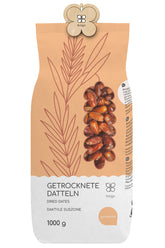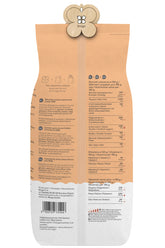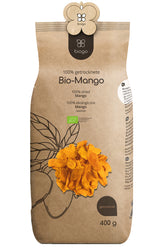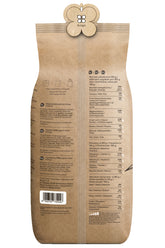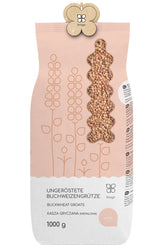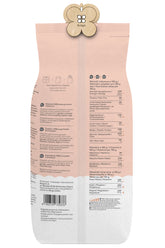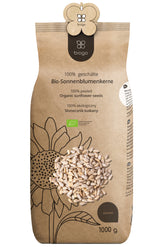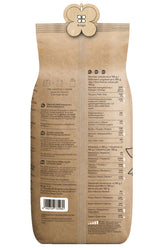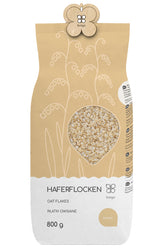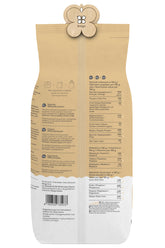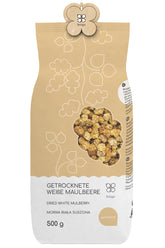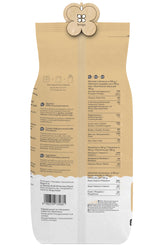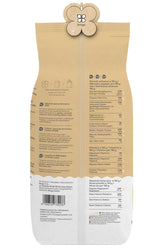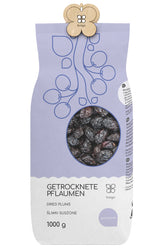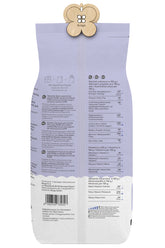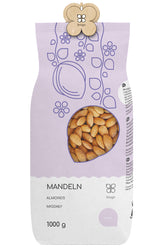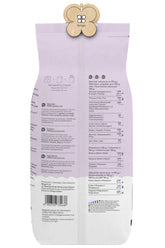Protein - the foundation for your health and performance
The importance of protein in the diet
Protein is one of the fundamental building blocks of our body and plays a crucial role in numerous vital processes. As the main component of muscles, bones, skin, hair, and nails, protein is essential for building and maintaining our body structures. Furthermore, it is involved in the regulation of hormones, enzymes, and antibodies, thereby supporting our immune system, metabolism, and regeneration.
Therefore, a balanced, protein-rich diet is not only important for athletes but for every individual. It provides the body with the necessary building blocks to maintain and optimize all these vital functions. But how much protein does the body actually need, and where can it best obtain it?
How much protein does the body need?
The daily protein requirement depends on various factors, such as age, gender, activity level, and health status. Generally, experts recommend an intake of 0.8 to 1.2 grams of protein per kilogram of body weight for adults. In cases of increased need, such as due to sports or illness, the requirement may be higher.
Athletes who train regularly typically need 1.2 to 2.0 grams of protein per kilogram of body weight to build and maintain muscle mass. Older individuals, who tend to have a higher protein requirement, should also ensure adequate protein intake to prevent sarcopenia (muscle wasting).
The best protein sources
To optimally supply the body with protein, high-quality, natural foods are especially recommended, such as:
Lean meat, fish, and seafood
Meat, fish, and seafood are excellent sources of protein. In addition to protein, they contain important vitamins, minerals, and healthy fatty acids. When consuming meat, opt for lean cuts to keep the amount of saturated fats low.
Eggs
Eggs are a very nutrient-rich food and contain high-quality, easily digestible proteins. They also provide important vitamins like vitamin A, D, and B12 as well as minerals like iron and zinc.
Dairy Products
Milk, yogurt, quark, and cheese are also excellent protein sources. Dairy products in particular contain not only protein but also a lot of calcium, which is important for bones and teeth.
Legumes
Peas, beans, lentils, and chickpeas are not only rich in fiber but also in plant-based protein. They are excellent as vegetarian or vegan protein alternatives.
Nuts and Seeds
Nuts such as almonds, walnuts, or cashews as well as seeds like chia, flaxseeds, or hemp seeds also provide valuable proteins. Additionally, they contain healthy fats, vitamins, and minerals.
Combining Protein Correctly
To optimally supply the body with all essential amino acids, it is important to combine different protein sources. Plant proteins often do not contain all required amino acids in sufficient quantities, while animal proteins typically provide them completely.
A balanced mix of both sources, for example legumes with nuts or whole grain products, ensures that the body receives all amino acids in the right composition. This way, the proteins can be optimally utilized for building and regeneration.
Protein in Sports Nutrition
For athletes, protein plays an especially important role as it supports muscle building and recovery after training. Training causes microtraumas in the muscles, which the body can repair and strengthen with the help of protein.
Depending on the sport and training condition, experts recommend athletes a protein intake of 1.2 to 2.0 grams per kilogram of body weight. This amount should be consumed throughout the day in the form of meals and snacks to ensure a continuous supply to the body.
Particularly important is the intake of protein directly after training as well as the combination with carbohydrates to optimize muscle recovery. Suitable protein sources for athletes include lean meat, fish, eggs, dairy products, or high-quality protein powders.
Conclusion
Protein plays a key role in our body and is essential for numerous vital functions. A balanced, protein-rich diet that combines various sources optimally supplies us with all essential amino acids and supports the building, maintenance, and regeneration of our body structures.
Especially for active people and athletes, adequate protein intake is particularly important to build and maintain muscle mass as well as prevent injuries. Therefore, pay attention to your individual protein needs and regularly integrate high-quality protein sources into your diet - for a healthy, high-performance life.

